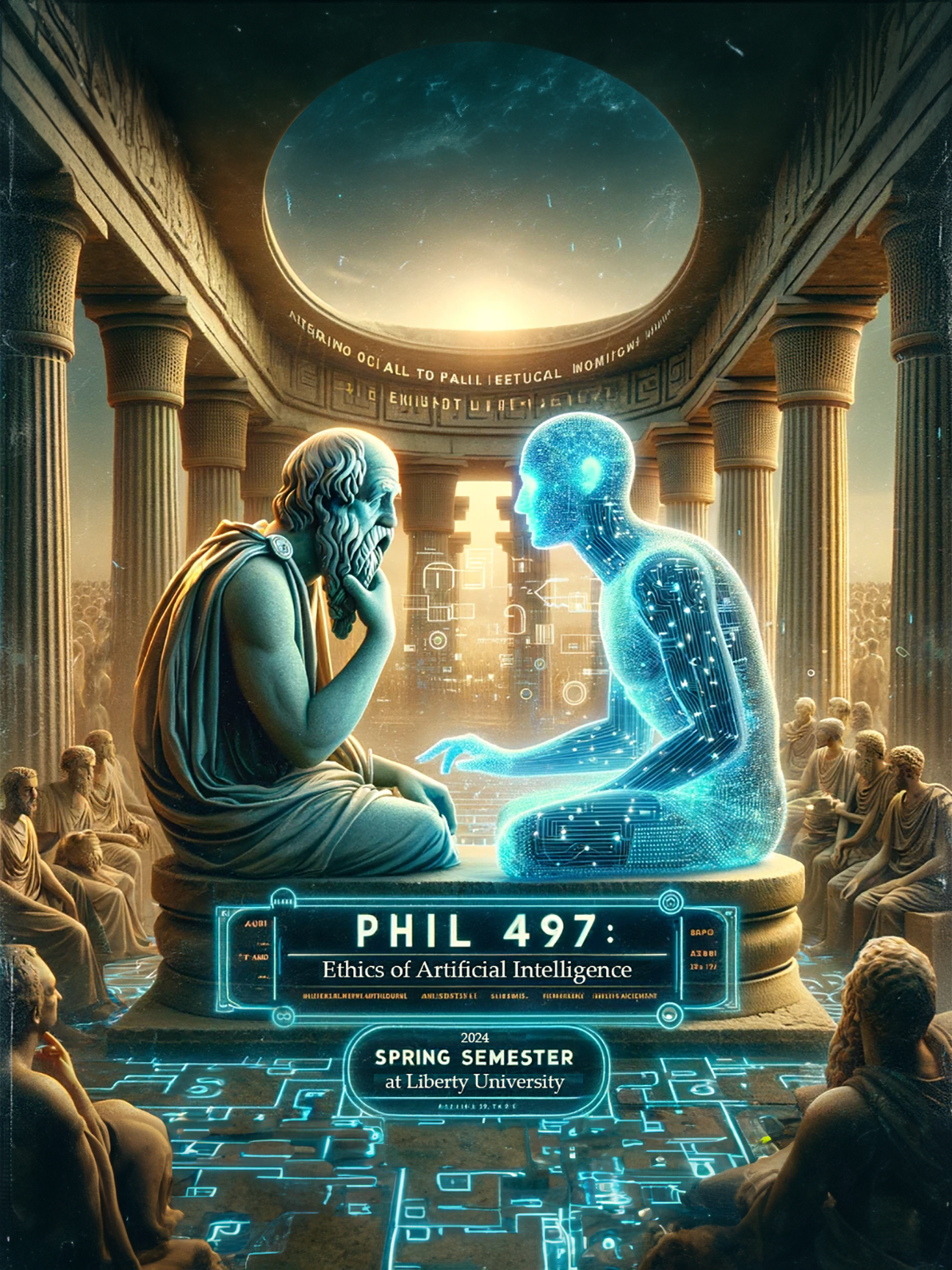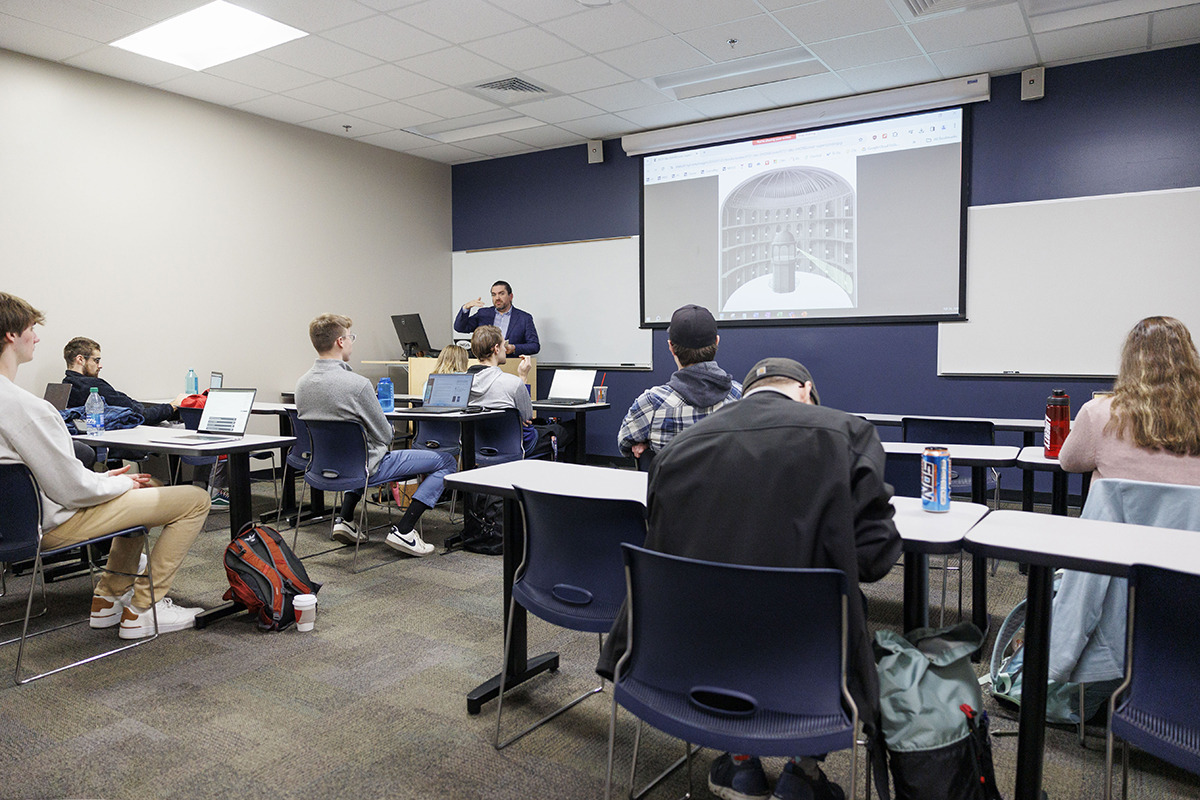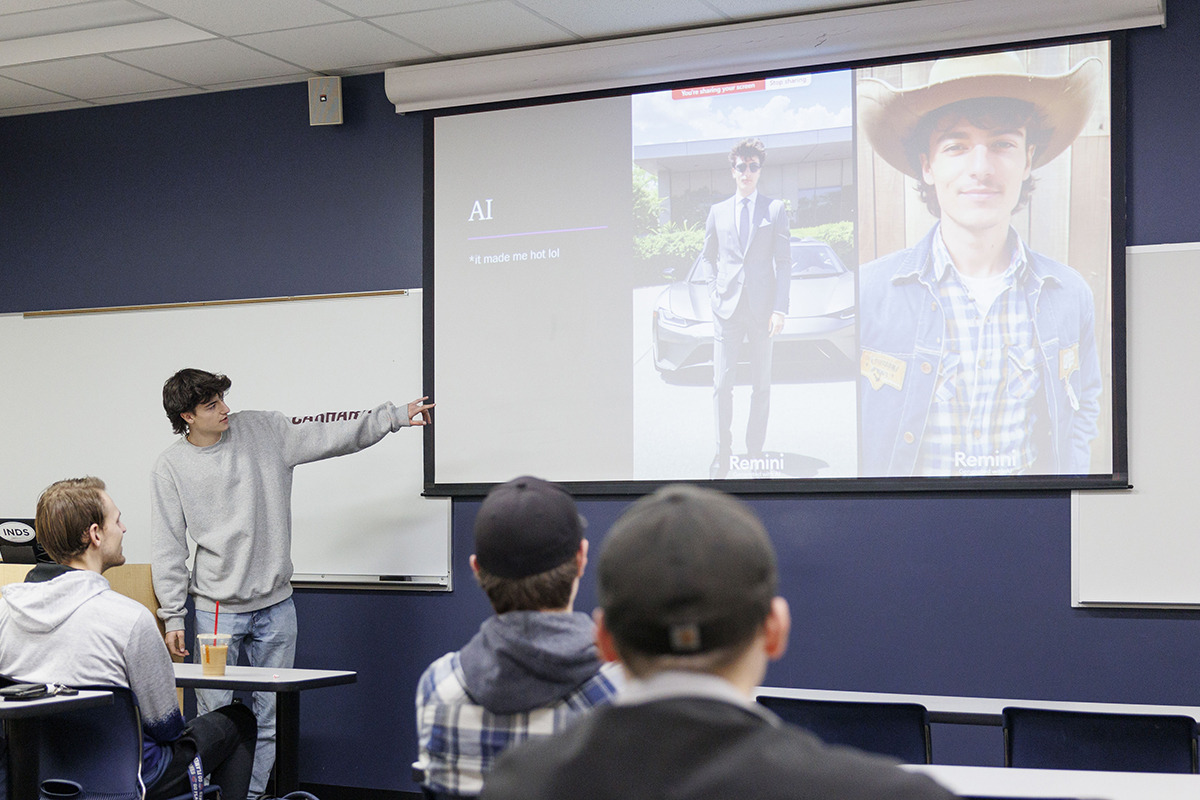
As artificial intelligence makes waves in culture and changes the workplace, a Liberty University professor is taking on the responsibility that comes with using the tool.
Dr. Alexander Mason, president of Liberty University’s Department of Interdisciplinary Studiesteaches the Ethics of Artificial Intelligence (PHIL 497), a pilot course this semester, in which he introduces students from various degree programs to a central question: how should people of faith view artificial intelligence through prism of a biblical worldview?
“I told my students on the first day of class, ‘You’re on the cutting edge here. It’s not something that’s going to happen anytime soon,” Mason said. “No sector will be significantly spared: psychology, business, education, the arts, etc. I think they recognize it, and to their credit, they recognized it before many others.
While other schools offer AI ethics courses, Mason said Liberty’s course could be the first at the college level to teach the subject strictly from an evangelical Christian perspective, filtering each concept through the Scriptures.
“What sets this class apart is that whatever disciplinary knowledge we bring together, we always temper it with a Christian understanding of ethics, which has always been at the heart of who we are as a university.
A fundamental principle discussed is that humanity is created in the image of God, or “Imago Dei”, and possesses qualities and characteristics that reflect God. Mason cited the creation of Adam, when God took dust from the ground, formed man, and gave him the breath of life, making him a living soul. Unlike Adam, anything humans create themselves – including artificial intelligence – does not have a soul and will never match God’s masterpiece in humanity.
“When we reflect God’s character and nature by being sub-creators…we do so in the physical sense, such as by creating and advancing technology to help us. But can the things we create ever truly approach the sophistication and beauty of humanity’s divine creation, the pinnacle of His creation? When we create physicality ourselves, we do not imbue these things with souls.
Mason added that even the term “artificial intelligence” can be misleading, because intelligence is a metaphysical endowment that can only come from God and cannot be physically produced.
“Talking about this computer chip or this AI software as being intelligent is a misnomer from the start,” he said. “When you dissect the skull and you look at the brain, where is the intelligence? You won’t find it. You will find folds of gray matter and neurons, but you will not find intelligence. It is an intangible concept.

Mason spent the first few weeks of class introducing AI and ethical frameworks and is now leading discussions on the different areas AI has entered, including art and creativity, human interactions and relationships, work economics, education, health care and war.
“The whole section on AI in healthcare was informative for my future as a doctor,” said Caleb Smith, a bachelor of medicine graduate. biochemistry and molecular biology and interdisciplinary studies with concentrations in Spanish and natural sciences. “There are a lot of moral questions surrounding its use in health care, with the humanity of your provider impacting your treatment. While AI is powerful and can help with the diagnostic aspect, there is something to be said for human providers and the one-on-one connection you have with your patients.
Recently, students discussed art and whether AI can be as creative as humans.
“When you go to ChatGPT and ask it to create an image for you, you can tell it to create in the style of Monet, Picasso or someone else, and it will do it,” Mason said. “But the real question is: Is this AI system really creative or is it just what we know expressed in terms of millions and millions of lines of algorithms and codes, capable of approximating what has already been forged by humans?
For this topic, each student presented an example of creativity that they made or found – a painting, a song, a poem, a photo, a short film script and a football play – and compared it to the same subject that he inspired the AI to create. In most, if not all, cases, the artificial creation was impressive but either didn’t feel authentic or turned the prompt into an unrealistic product, illustrating the fallibility of technology.
“An AI system may look creative when it spits out something in three seconds, but it has no feeling,” Mason said. “When humans create something, when we witness the creation of something, when we experience a work of art, we have a metaphysical connection on another level. We recognize the value of creation and creativity, while AI does not.

As an interdisciplinary studies student, junior Mary Katherine Flage said her two areas of focus: fine arts And behavioral sciences – have connections with AI.
“I don’t have a lot of background in philosophy, but I feel like this particular course applies to almost any field,” she said. “On the behavioral science side, understanding the human mind and how it can be mimicked or mirrored by artificial intelligence is fascinating, and my fine arts major is also inspired by how AI and creativity interact. I really wanted to explore these themes further and have these insightful conversations, so I signed up for this course.
Ben Milkie, a sophomore, who is pursuing a bible studies degree and an interdisciplinary degree with one objective being philosophysaid the class prepared him for the conversations he is likely to have with those in his future ministry.
“My goal is to become a pastor, and I think in the future that will be an area that a lot of people will have questions about,” he said. “I thought it would be something useful to take before we get to that point, because AI is ubiquitous now and it will be even more so in the near future.”
By helping students engage with these topics beyond simply writing research papers, Mason has developed opportunities to put their ideas into action, such as hosting “speed debates” in which students see themselves assign a position on an ethical issue related to AI and have a few minutes. Argue. An upcoming project is a career impact presentation, in which they will explain how AI will impact their chosen career field. In place of the final exam, Mason planned a simulated “rogue AI” scenario in which each student plays the role of a representative of a country, international organization, technology company or ‘another field and must work together to prevent a potential nuclear catastrophe caused by AI. .
With AI rapidly being adopted by the mainstream, Mason recognized that the technology is written by people with their own beliefs and biases, meaning the answers given by AI cannot always be taken as unbiased fact .
“Philosophy abhors a vacuum. As such, we must recognize that a person’s ethical system, or worldview, is encoded in the algorithmic architectures of these AI systems,” he said. “For any question regarding a moral problem or question, the system will provide an answer that is inextricably and intentionally linked to the ethical worldview of its programmers.”
He stressed the importance of Christians being aware of AI and even getting involved in its development.
“As Christians, we would not be wise to bury our heads in the sand and pretend that AI is something we cannot impact or should not even bother with. If Christians don’t get technical and ethical training in this area and then get jobs at these companies in order to impact how AI systems are designed and coded from the beginning, then we could find ourselves the target of the most powerful technology. in the history of humanity.
Mason said higher education is a great place to start studying the topic of AI and he feels a responsibility as a professor to teach it at a Christian university.
“Higher education is about preparation, and Christian higher education has an added dimension: it prepares for all aspects of life,” he said. “When we (faculty) see things coming up, like major developments and changes in culture and technology, we need to help students prepare accordingly. We have hundreds of possible specializations here, and I can’t think of any of them that won’t have a significant impact from artificial intelligence. “Whatever vocation they choose, our students will confront the ethical dimensions of AI, and I want them to be fully prepared to apply Christian truth in every moment with intelligence and courage. »


